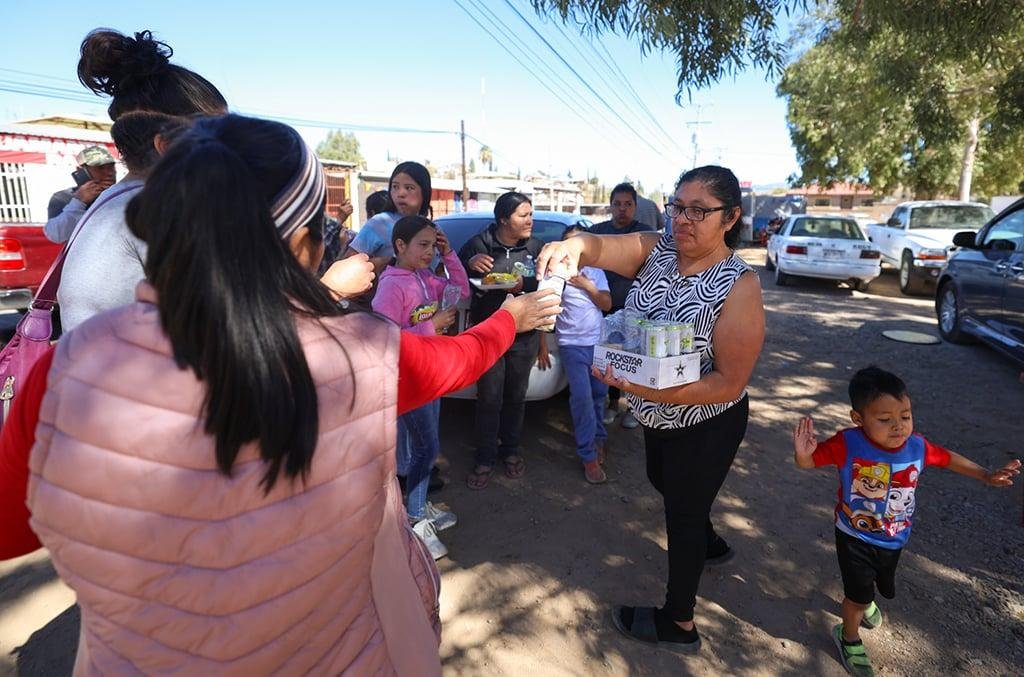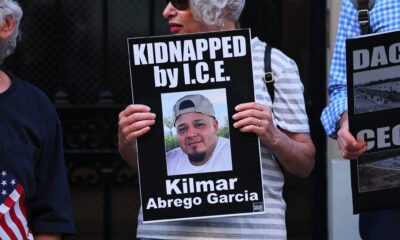arizona
Deported Migrants Fight for Survival on Nogales’ Precarious Frontier

NOGALES – Sunlight streams through the sparse branches of trees surrounding Cancha Reforma, a desolate basketball court in Colonia del Rosario, Nogales, Mexico. Once a hub for gathering, the benches now sit derelict, their paint peeling and surfaces cold in the morning breeze. Scattered chip bags and soda cups dance across the cracked asphalt, highlighting the space’s abandonment.
Yet this court has become an unintended refuge for deported migrants and displaced families from the United States, who now call it home. In the shadows, makeshift shelters of tarps and plywood offer minimal protection against the elements.
“We have formed a community here. We know we are not alone,” shared María Rosario Lopez, a mother of two who was deported over a year ago from Avondale. She recounted watching U.S. Immigration and Customs Enforcement (ICE) agents raid a friend’s home during a family gathering. Despite having a pending asylum case, she was detained and sent to the Eloy Detention Center in Arizona.
Lopez represents an estimated 11 million undocumented immigrants in the U.S. at risk of deportation. Surrounded by other deported individuals, she reflects on her journey and their collective struggle.
The conditions at the detention center left deep scars on Lopez. It was a choice between what she described as cruel confinement with overwhelming solitude or returning to Mexico. “I have to keep moving forward for them,” she said, referencing her two sons left behind.
ICE operates over 190 detention centers across the U.S., holding noncitizens during their immigration proceedings. Lopez criticized the atmosphere within these facilities, stating, “They treat us like we’re criminals; it’s a prison.”
Her experience was compounded by neglect—after fracturing her foot, she declined surgery, fearing the agents and medical staff. “They didn’t care,” she recalled, frustration evident in her voice.
Lopez’s story is not isolated. Reports indicate that many in detention face serious delays in accessing mental health care, with most requests unanswered. Tragically, six deaths in ICE custody have been reported in the current fiscal year alone. “Each of these deaths represents a preventable tragedy,” said Eunice Hyunhye Cho, an ACLU Senior Staff Attorney.
The implications of detention extend beyond legal status, affecting health and well-being. Focus group studies by Kaiser Permanente note the heightened fear among immigrant families. Lopez is still grappling with her traumatic experience in ICE custody, feeling unheard by the professionals meant to help.
“These people are forgotten,” stated Alma Mendoza, founder of Esperanza, a nonprofit assisting deported families with essential supplies. Volunteers from Esperanza arrive at Cancha Reforma multiple times a month, equipped with food and hydration resources.
“To so many of us, everyday necessities seem insignificant, but to them, it means everything,” Mendoza emphasized. Running on donations from her cleaning job in Phoenix, Mendoza’s efforts highlight the humanity intertwined with economic contributions of immigrants.
As the community navigates life defined by uncertainty, resilience flourishes. “There is no justice system,” Mendoza lamented. At Cancha Reforma, the sight of children laughing and mothers sharing stories symbolizes an enduring spirit amidst adversity.
For Lopez, hope persists. She dreams of justice and reuniting with her family, small sparks of optimism in a landscape marked by hardship.
















